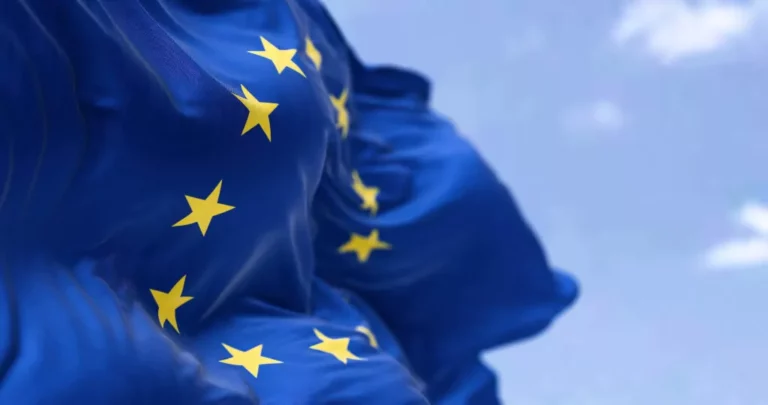Add to favorites:
Share:
Projects are expected to contribute to the following outcomes:
- Improved and professionalised NCP services across Member States and Associated Countries, thereby supporting access to Horizon Europe calls, lowering the entry barriers for newcomers, and raising the average quality of proposals submitted;
- A more consistent level of NCP support services across Member States and Associated Countries;
- Facilitating participation of new players in projects in each thematic area;
- Matchmaking activities to link up potential participants from widening countries with emerging consortia in each thematic area. Matchmaking should use a variety of possible tools;
- Increased cooperation of NCPs with the Enterprise Europe Network;
- Integration of the different components of Cluster ‘Digital, Industry and Space’ and of the respective stakeholders.
Scope:
Building on the three existing NCP networks of Cluster 4 ‘Digital, Industry and Space’, proposals should facilitate trans-national co-operation amongst National Contact Points (NCPs), encouraging cross-border activities, sharing good practices and raising the general standard of support to programme applicants.
Proposers may wish to foresee specialised services covering different thematic areas of the cluster, drawing on the expertise of the predecessor networks. Proposers should adopt the best practices identified in each predecessor network, aiming for standardised and coordinated services to all stakeholders in the Cluster 'Digital, Industry and Space'. A close collaboration amongst the proposals should be put in place, to ensure the cohesion of the services in the three thematic areas of Digital, Industry and Space, with a single entry point with enhanced common functionalities, and a common visual identity. Proposers should also enhance opportunities for collaboration across the cluster, and identify opportunities in other clusters and the EU Missions of Horizon Europe.
Given the importance of human-centric approaches in this cluster, the proposals should attract new types of player to the cluster, for instance social innovation players, makers and youth associations. Appropriate expertise from social sciences and humanities (SSH) should be included.
In view of the coordinated plan on advanced materials, the 'Industry' network and the 'Digital' network should align the support for advanced materials and 2D materials, as well as synergies for advanced materials with other parts of Horizon Europe.
Special attention should be given to enhancing the competence of NCPs, including helping less experienced NCPs rapidly acquire the know-how built up in other countries. Particular attention should be paid to enhancing the participation from widening countries of Horizon Europe.
Where relevant, synergies should be sought with the Enterprise Europe Network to organise matchmaking activities in accordance with Annex IV of the NCP Minimum Standards and Guiding Principles.
For the 'Digital' network, the estimated project size is EUR 2.5 million; for the 'Industry' network EUR 1.5 million; and for the 'Space' network EUR 1.0 million.
Expected Outcome
Projects are expected to contribute to the following outcomes:
- Improved and professionalised NCP services across Member States and Associated Countries, thereby supporting access to Horizon Europe calls, lowering the entry barriers for newcomers, and raising the average quality of proposals submitted;
- A more consistent level of NCP support services across Member States and Associated Countries;
- Facilitating participation of new players in projects in each thematic area;
- Matchmaking activities to link up potential participants from widening countries with emerging consortia in each thematic area. Matchmaking should use a variety of possible tools;
- Increased cooperation of NCPs with the Enterprise Europe Network;
- Integration of the different components of Cluster ‘Digital, Industry and Space’ and of the respective stakeholders.
Scope
Building on the three existing NCP networks of Cluster 4 ‘Digital, Industry and Space’, proposals should facilitate trans-national co-operation amongst National Contact Points (NCPs), encouraging cross-border activities, sharing good practices and raising the general standard of support to programme applicants.
Proposers may wish to foresee specialised services covering different thematic areas of the cluster, drawing on the expertise of the predecessor networks. Proposers should adopt the best practices identified in each predecessor network, aiming for standardised and coordinated services to all stakeholders in the Cluster 'Digital, Industry and Space'. A close collaboration amongst the proposals should be put in place, to ensure the cohesion of the services in the three thematic areas of Digital, Industry and Space, with a single entry point with enhanced common functionalities, and a common visual identity. Proposers should also enhance opportunities for collaboration across the cluster, and identify opportunities in other clusters and the EU Missions of Horizon Europe.
Given the importance of human-centric approaches in this cluster, the proposals should attract new types of player to the cluster, for instance social innovation players, makers and youth associations. Appropriate expertise from social sciences and humanities (SSH) should be included.
In view of the coordinated plan on advanced materials, the 'Industry' network and the 'Digital' network should align the support for advanced materials and 2D materials, as well as synergies for advanced materials with other parts of Horizon Europe.
Special attention should be given to enhancing the competence of NCPs, including helping less experienced NCPs rapidly acquire the know-how built up in other countries. Particular attention should be paid to enhancing the participation from widening countries of Horizon Europe.
Where relevant, synergies should be sought with the Enterprise Europe Network to organise matchmaking activities in accordance with Annex IV of the NCP Minimum Standards and Guiding Principles.
For the 'Digital' network, the estimated project size is EUR 2.5 million; for the 'Industry' network EUR 1.5 million; and for the 'Space' network EUR 1.0 million.

